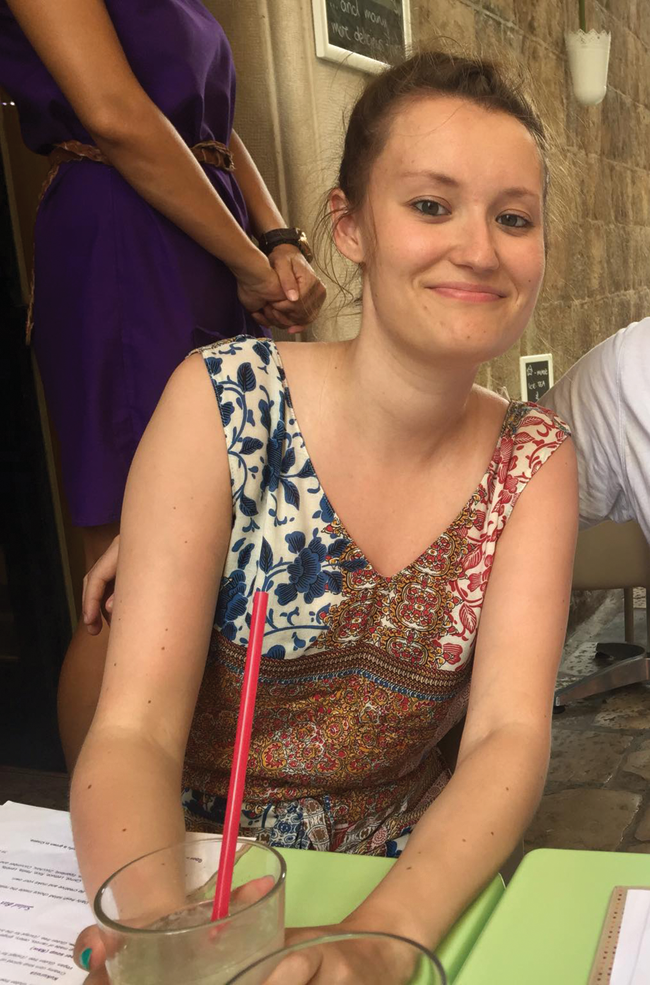Helen shows how learning to live with an intolerance can be deeply rewarding…

As far back to the age of 17 I can remember having a sore stomach. The pain would normally come after eating, although I hadn’t realised it was just food causing me the pain. I was always a worrier, so I put the pain and discomfort down to anxiety. I particularly noticed the pain if I was out for a meal. I’d worry about standing up and having to walk after my meal, even if it was to the car that was parked a bit further than usual from a restaurant. But oddly enough, I thought it was normal! I went to uni, lived life to the full and continued eating normal food. I started hating going out for meals because of the subsequent pain. I also hated going on nights out. I drank all sorts, as most students do, and that included beer. So now my stomach was hurting basically everywhere I went. I was constantly in pain, but still didn’t think anything of it. I just thought it was normal.
I moved home with my parents and a few years later I moved in with my boyfriend to our first rented house. It had become the ‘norm’ to have a hot water bottle straight after dinner every single night to help calm my stomach. I mean, how is that normal? But I still didn’t think too much of it. The following Christmas, my boyfriend bought me a hot water bottle – a fancy German wet-suit like hot water bottle – as a stocking filler and I was so happy; it stayed warm for hours and hours so it was perfect. When telling the girls at work about my amazing gift it was met by confusion, ‘How often do you use a hot water bottle?’ Then it got me thinking that what I was doing was weird. That night I watched as my boyfriend, like clockwork, got up after dinner and filled the kettle up for my hot water bottle. How had I not noticed that this was really odd?
Could it be all linked to this awful pain? Typing my symptoms into Google flagged up coeliac disease. It was odd how the symptoms did match, but then again, IBS wasn’t too far removed either. After describing my symptoms to the doctor, he also said he thought it was more likely it was IBS, but would send me for a blood test anyway.
The results
After a few weeks the doctor said my blood test had shown a high percentage chance of coeliac disease. I had another blood test and the results showed that my iron levels were low, which was another element common with coeliacs. As a result I was referred to the practice nurse and now have a B12 jab every three months. It’s amazing the difference it makes to my wellbeing.
The doctor referred me to a Gastroenterologist, who suggested I had an endoscopy, and if a gluten-free diet hadn’t taken away the pain, or perhaps my blood test wasn’t as high, or even if I wasn’t anaemic, then I’d have thought about having one. It seemed unnecessary to go through even more appointments to clarify something I already new.
What’s life like now?
Since diagnosis in April 2015, I initially encountered many problems with my food; it’s a complete lifestyle change. I struggled with finding tasty and easy lunch ideas. Not many places sell a gluten-free wrap or a sandwich, and when colleagues brought cakes and sweets and chocolate in, I felt a bit left out. But you do get used to it and it’s not a big deal in the grand scheme of things. I’m getting healthier and that’s the main thing.
I’m still in a hypersensitive first-year stage of my diagnosis, which means I am more likely to feel the effects of eating the smallest bit of gluten, but as my gut heals this will get easier. I still miss pasta, spring rolls and I actually miss real bread, but you find tasty alternatives and making your food from scratch helps you understand exactly what you’re eating. I’m getting much better at making bread and, because gluten intolerance is becoming more widely recognised, brands are producing more foods to cater for it. So, even though it is a daunting lifestyle change, you do adapt and life goes on!
I’ve since joined Coeliac UK, and am in the process of becoming a committee member for my local group. I also created a gluten-free blog to help spread the word about coeliac disease, and to hopefully help anyone who has just been diagnosed, or anyone who wants some tasty new recipes and helpful tips about the autoimmune disease.
For more information, visit www.glutenousminimus.co.uk
